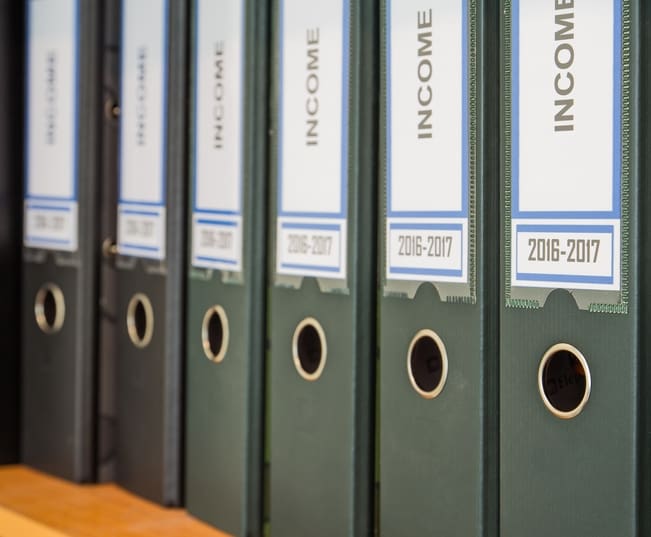Many business owners find it difficult to decide which records to store and which to destroy or shred. Many hesitate to destroy documents out of regulatory compliance concerns. When this is the case, the result is a lot more files on hand than are actually needed.
After months or years of this practice, companies end up with an unmanageable number of files stored on-site. It is important to understand that when tasked with deciding whether or not to store a file, due to regulatory concerns, it is often a wise idea to speak with a knowledgeable lawyer or accountant first.
The following will review some of the tips that you should follow when deciding whether or not to retain a business file.
Tax Records
One of the most common questions we receive regarding file retention is what companies should do with old tax records. Despite the sensitive nature of tax records, there is no reason to keep these documents longer than is necessary. The Internal Revenue Service recommends the following guidelines for retention of tax records:
- In most cases, tax records documenting income, expenses, credits, and deductions should be kept until the period of limitations for the tax expires. A period of limitation is the amount of time that a person has to amend a tax return, or the period after which IRS can no longer assess an additional tax. While some people believe that a seven-year rule retention rule applies to all tax documents, the length of time that a tax-related file should be kept varies greatly based on the particular record involved.
- When deciding which specific tax records to retain, the Internal Revenue Service recommends holding onto records that clearly depict your income and expenses.
Retention of Important Non-Tax Records
In addition to tax records, there are a number of other important types of files that companies must decide whether to retain or destroy. Some of the helpful guidelines regarding the retention of non-tax-related documents include:
- Some of the most common types of documents that can clutter up a company’s paperwork include financial statements, employment applications, and utility records. These everyday records should be retained for a period of three years.
- There are other records that fall outside of this three-year limitation. For example, instructions and warranties should be kept for the life of a product, insurance policies should be kept for the life of a policy, and car records should be retained until a car is sold.
Speak with a Document Storage Expert Today
Even though deciding whether to keep a file and for how long can seem like a challenge, it is only part of the equation. Companies must then make a decision about how as well as where files will be stored. If you have questions or concerns about the file storage process, it can help to speak with an expert. Contact Armstrong Archives today to learn more about how we can help you meet your file storage needs.

Posted By: Sherri Taylor – President/Managing Partner
Sherri Taylor is the Managing Partner and President of Armstrong Archives, one of the largest independent records and information management companies in the Dallas/Ft Worth area.












